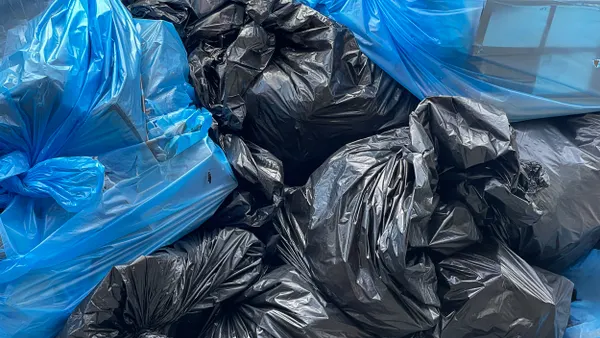Dive Brief:
- The Colorado Association for Recycling (CAFR) has picked Colorado Springs as the location of its first regional chapter where it will implement a pilot recycling agenda amid a broader push for new strategies around the state, as reported by The Gazette.
- The nonprofit plans to start by focusing on cardboard. Bestway Disposal, one of the area's main service providers, estimates that 40% of local cardboard and paper is going into refuse containers and often ends up in landfills. A potential disposal ban on this material could help change that and also save space, in turn allowing customers to reduce collection costs.
- Other priorities include improving data collection, expanding access to curbside recycling and finding ways to bring in more companies that want recycled material as feedstock. ReWall, an Iowa company that uses beverage cartons to make building panels, was cited as an example.
Dive Insight:
With a growing population of more than 465,000 people, Colorado Springs is farther behind on recycling compared to many other cities of its size. While exact diversion rates aren't tracked, a recent report estimated that overall El Paso County is at 11%. This is below the statewide estimate of 19% and far below leading — albeit smaller — Colorado cities such as Loveland and Boulder.
Nonprofits such as CAFR, Eco-Cycle and the Colorado Public Interest Research Group have been working on this issue for years, and are now beginning to see a more receptive statewide climate. In August, the Colorado Solid and Hazardous Waste Commission voted to approve the state's first-ever diversion goals — starting with 28% by 2021 — and interest is growing in local solutions. In Denver, this has included an expanding curbside organics program and a new education campaign by The Recycling Partnership.
As the state's second most populous city, and largest in terms of area, Colorado Springs is a logical choice for prioritization. Though it will come with its own challenges. These include the logistical factors of drop-off recycling, high tourist traffic and a propensity for limited government rather than policy mandates. CAFR and local supporters hope to make the case that cardboard recycling, of all things, has clear environmental and economic benefits. More complicated topics, such as multi-unit recycling or organics collection, can then follow.











